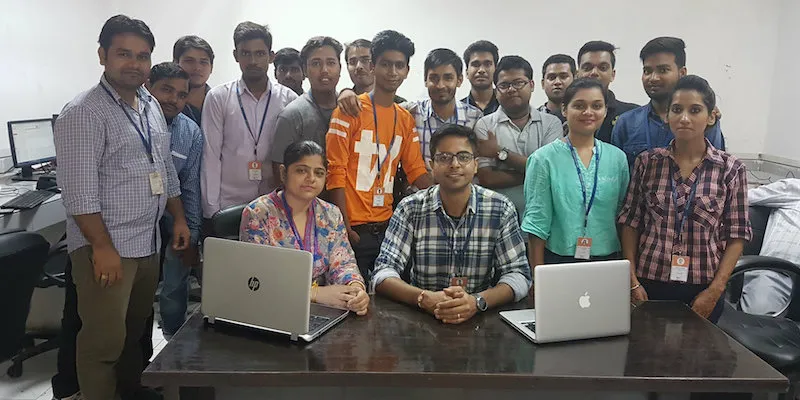This 21-year-old lad believes he can take on Grofers, Big Basket in e-tailing grocery
In e-commerce, the conundrum of grocery e-tailing is still to be solved. Since 2011, players have raised millions of dollars are yet to offer a foolproof business model.

Come 2016, Grofers, which was on expansion spree, started withdrawing its presence from various cities. LocalBanya shutdown its operations permanently. Pepper Tap, which had raised over $51 million, announced the closure of the business this year.
Such news doesn’t deter 21-year-old Shrenuj Jalan.
Probably, they didn’t get their business model right, but the unit economics in my business is at place.
Two years ago, then 19, Shrenuj, a commerce student, came up with an idea to build an online grocery platform. When he approached his parents with the idea, they suggested him to pursue his studies and clear the examinations of chartered accountancy.
Nevertheless, Shrenuj was not ready to give up on his idea. With his personal savings of Rs 30,000, he began working on the product. He went back to his parents and asked for the monetary help with an assurance of continuation of his further studies.
In October 2014, he launched BazaarCart, an online grocery store which offered its services in Delhi, Noida and Faridabad using just-in-time model.
“The thought behind launching the platform was to stop the monopoly of local kirana stores who sell items on exorbitant price along with loose grocery items, which are very unhygienic,” says Shrenuj, Founder, BazaarCart.
Within just few days of operation, he started facing issues. The business required more workforce, which is an expensive deal, delivery of items turned out to be expensive, and there was no profit model in procuring and delivering products.
With a lot of deliberation, he decided to address each issue separately. In business, one can’t do away with workforce. To recruit people in the least of expenditure, he targeted newly passed students. To manage delivery, he removed just-in-time model and introduced delivery within 24 hours. He adopted inventory model, where he added other categories (like personal care, stationery) along with grocery. He cut down the chain of retailers and distributors and started procuring products directly from the company.
Also Read: On-demand grocery startup Milkbasket claims to hit positive unit economics, snaps up $500K funding
“In the team of 45 people, the average age is 23. The tweak in the delivery model helps us saving extra cost. And the direct procurement from brands gives us hefty commission on products, which we use to pass discounts to end consumers,” says Shrenuj.
The platform claims to have 45,000 unique customers. Of the total customers, 40 percent of them return every quarter. The team says that it hits 200 orders a day and clock a turnover of Rs 1.5 crore a year. The minimum order is no less than Rs 500.
“With cheap workforce, our own delivery team and new delivery model, we have reduced cash burn to just Rs 2 lakh per month. In a few months, we will surely cut this down too,” says Shrenuj.
Roadmap for product
According to Shrenuj, the website is being revamped and the app will have more features such as e-wallet, personalised offerings and offer better consumer experience. The platform plans to open offline stores to increase its footprints in the market.
Apart from daily need items, they also plan to add new categories like medicine on the platform.
Shrenuj says that he wants to turn the platform into an online bazaar where customers will be coming at least twice a week. He aims to make a profitable business chain.
Bazaarcart is planning to expand to 10 more cities within next two years, including metros and tier-II cities.
Industry overview
According to Ken Research, Indian online grocery market is set to hit Rs 2.7 billion mark by 2019.
Although the figure looks enticing, the existing players are yet to perform in this category. Since 2011, Grofers, Big Basket, Zop Now, Pepper Tap and Local Banya collective raised around $400 million.
In three rounds of funding, Grofers raised around $167 million from Sequoia Capital, Tiger Global and Softbank. Since 2011, Big Basket, one of the oldest in the category, has raised $155 million.
Pepper Tap and Local Banya, which raised $ 51 million and $5 million (and two undisclosed rounds), respectively, couldn’t sustain in the business and had to close it down.
However, it will be interesting to observe how other smaller startups in the segment manage the business.







